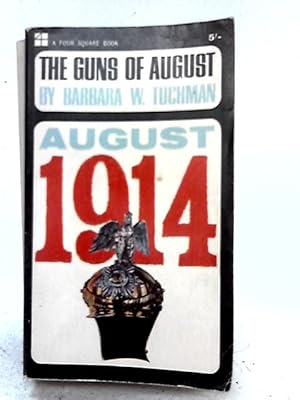
The first battle of the Marne is brushed in with familiar shots-and lots of jumbled words.Mr.



The crucial battle of Tannenberg between the Germans and the Russians on the Eastern front is covered with a few shots of generals, such as the Grand Duke Nicholas and von Hindenburg. Kroll for searching all available film archives in Europe for footage not heretofore seen, he has come up with little-indeed, nothing-that yanks you out of your seat.There are conventional shots of German cavalry entering Belgium, the siege of the forts of Liège, the ruins of Louvain, of the British generals inspecting and saluting (intended to show the appalling disagreement over strategy between Lord Kitchener and Sir John French). This is what the narrator says to support a shot of several fellows in uniforms gathered in a group:"In the Balkans, long dominated by the Ottoman Empire of Turkey, King Peter of Serbia, his foreign minister, Patchitch, and his son and heir apparent, Alexander, joined with the rulers of other Balkan powers, among them King Ferdinand of Bulgaria, in a determined attempt to liberate the Adriatic world from Turkey's control."Who gets a sense of something ominous-of drama in the making-from that?Likewise, the scenes of warfare, after the beginning in August, 1914, are generally skimpy, sketchy and unexciting. While it opens with melancholy scenes of the crowned heads and autocrats of Europe gathered for the funeral of Edward VII of Great Britain in 1910 and goes on with shots of various rulers hobnobbing and beating their chests in the next four years, it does not give the eye or the imagination any more to excite a sense of a gathering storm than the words of the accompanying narration, which is turgid and hard to understand.Take this passage, for instance. Tuchman's book as it ticks off the incidents that led up to-and the early happenings of-World War I is the magnitude of the human folly and blunder that brought it on, the blindness of those who allowed it and the naïveté of those who became involved.There is little of this in the picture. And it certainly is a feeble documentation of that long-ago war at this late date.The awful and shattering realization that piles up in Mrs. It opened at the Beekman yesterday.Although it intends to be a worthy pictorial approximation of the book, and does, indeed, manage to recapture some of the look and horror of that hideous war, it fails to convey the essence of Mrs. Tuchman's vivid history of the outbreak of World War I, "The Guns of August," Nathan Kroll and a group of associates have assembled a documentary film, which they call by that eloquent title.


 0 kommentar(er)
0 kommentar(er)
